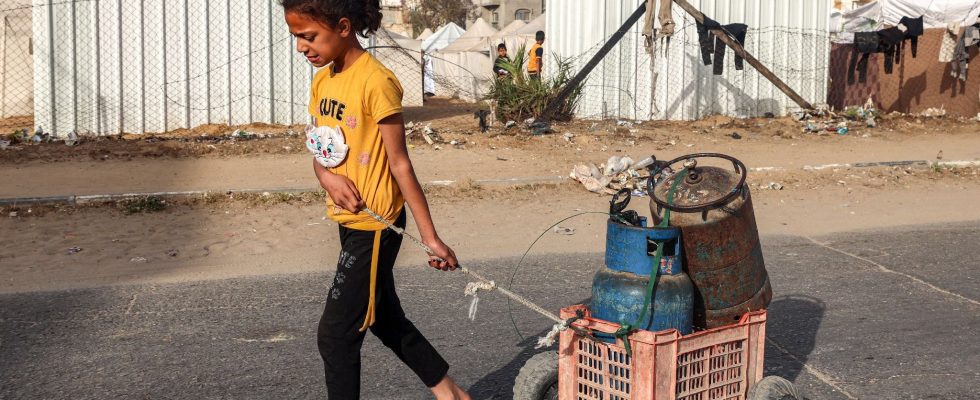What if the countdown had started for Rafah? In recent days, preparations for a land offensive seem to be accelerating within the Jewish state. The spokesperson for the Israeli government, David Mencer, informed Thursday, April 25, that the war cabinet had met “to discuss ways to destroy the last battalions of Hamas.” The same day, it was the general staff who informed the war cabinet that the Tsahal – the Israeli army – was ready and was just waiting for the political green light. According to the head of government, Benjamin Netanyahu, a date has already been set for this major operation in the south of the Gaza Strip.
Several signs show that Tel Aviv is tightening its grip on the city of Rafah, which serves as a refuge for nearly a million and a half Palestinians. First of all, two units of Israeli reservists were mobilized for “missions” in the Gaza Strip, while the number of Israeli soldiers deployed had fallen sharply in recent weeks. Beyond mobilizing its troops, the Jewish state is also preparing the diplomatic ground in the region. The Chief of Staff, Herzi Halevi, and the head of the internal security service, Ronen Bar, visited Cairo on Wednesday April 24. Objective: to reassure its Egyptian neighbor who fears that an Israeli attack will push Palestinian refugees to force their country’s borders.
According to Egyptian officials, cited by THE Wall Street Journal, Israel is preparing to move civilians from Rafah to the nearby town of Khan Younes, in particular, where it plans to set up shelters and food distribution centers. The Israeli army has ordered 40,000 tents capable of accommodating ten to twelve people.
Note that 150,000 people have already fled to Khan Younes. The evacuation could last two to three weeks and would be co-led by the United States, Egypt and other Arab countries, according to Israeli officials. In addition, a “humanitarian zone” designated by Israel along the coast would be expanded to accommodate more civilians, an Israeli military official said Monday, April 22.
Rafah, the Israeli objective
In THE New York Times, Sandra Rasheed, director of the Jerusalem office of Anera, a humanitarian group, said on April 23 that Israel had not informed her of an imminent operation there, but that the organization had found shelter for its staff members and their families to settle in Al-Mawasi, a Palestinian coastal town near Rafah. Earlier this month, Jamie McGoldrick, then the top UN humanitarian official in Jerusalem, indicated that an Israeli invasion of Rafah could force hundreds of thousands of people to try to flee north. A risky journey through bombed roads littered with unexploded ordnance.
Since the start of the war launched on October 7 in the Palestinian territory, the Israeli authorities have kept their eyes fixed on the city of Rafah, which they consider to be the last bastion of Hamas. According to the military, four of the six battalions still available to the military branch are concentrated in this city. For Benyamin Netanyahu, “a total victory” over the Palestinian Islamist movement cannot therefore be envisaged without an attack on Rafah.
Fear of bloodshed
Abroad, many capitals and humanitarian organizations fear, in the event of an offensive, a bloodbath in this city in the south of the Gaza Strip. Furthermore, an attack in Rafah would risk alienating part of the international community, including valuable allies. On several occasions, American President Joe Biden has said he is “deeply concerned” if the Israelis were to attack this locality. For him, no operation is calibrated to minimize civilian losses.
In March 2024, US National Security Advisor Jake Sullivan added that the major ground offensive would be “a mistake” due to the risks imposed on displaced Palestinians. However, his differences with Israel did not prevent him from releasing $26 billion in aid to Israel, while continuing to supply arms and ammunition to the IDF.
And on the French side? Thursday April 25, Emmanuel Macron and Abdallah II, during a telephone call, “discussed the catastrophic humanitarian situation in Gaza” and “expressed their deepest concern about the prospect of an Israeli offensive on Rafah and reiterated their opposition to this operation”. The French presidency reports: “Both insisted on the need for an immediate and lasting ceasefire in order to allow the massive delivery of emergency aid and the protection of civilian populations.” Let’s see if the Jewish state continues to turn a deaf ear.
